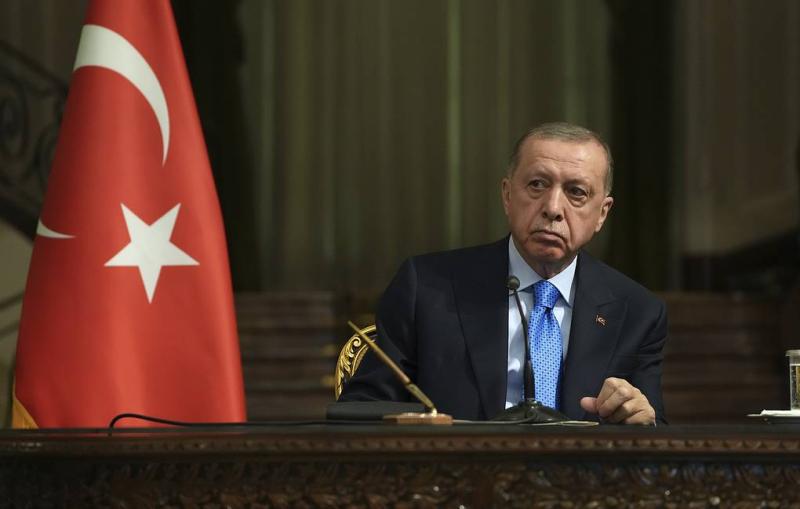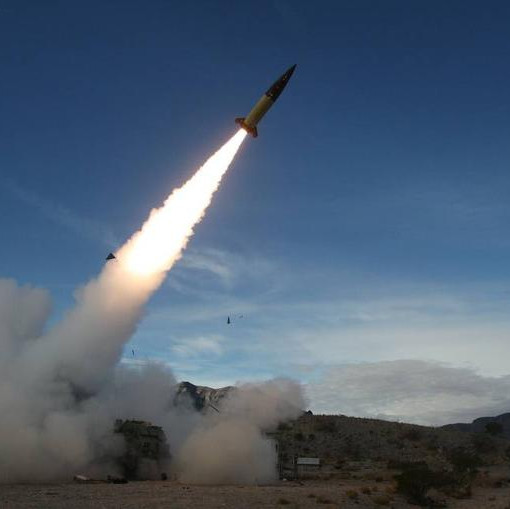
© AP Photo/Vahid Salemi/TASS
Top stories from the Russian press on Thursday, August 18th, prepared by TASS
Izvestia: Erdogan plans to visit Ukraine
Turkish President Recep Tayyip Erdogan will visit Lvov on August 18, where, together with UN Secretary General Antonio Guterres, he will meet with Ukrainian leader Vladimir Zelensky. Previously, Erdogan frequently spoke on the phone with the Ukrainian head of state and recently flew to Sochi for talks with Russian President Vladimir Putin. According to experts interviewed by Izvestia, Turkey wants to maintain its intermediary status.
This time, Ukraine and Turkey are expected to discuss the terms of the food deal reached in Istanbul as well as weapons deals, Izvestia writes. According to Turkish media, Erdogan will also discuss Turkish-Ukrainian relations that have reached the level of strategic partnership in bilateral negotiations with Zelensky.
According to Izvestia, Moscow is wary of the friendship between Ankara and Kiev. Erdogan constantly declares support for the territorial integrity of Ukraine.
"Turkey is very important for Ukraine as one of the Black Sea's political and military powers, and as the country that closed the straits for Russia following the start of the special military operation. Furthermore, since the beginning of the escalation of the Ukrainian conflict, Turkey has sought to act as a bridge between Moscow and Kiev," a source in Turkish diplomatic circles explained to Izvestia.
"Turkey seeks to maintain its status as a center of attention, a hub, even for diplomacy. It is possible that during the negotiations between Erdogan and Zelensky, military-technical issues will also be discussed, in particular, the Bayraktar TB2 drone production plant," researcher at the Department of the Middle and Post-Soviet East of the INION RAS Alina Sbitneva told the newspaper.
"Not so long ago, Kremlin Spokesman Dmitry Peskov voiced Russia's position that if the plant is built, it will fall under demilitarization. This is a signal for Ankara, it was probably heard, but whether it took it into account or not, will become clear later. Mediation between Ukraine and other countries is an integral part of Ankara's foreign policy," the expert believes.
Vedomosti: India, China buy up Russian coal rejected by EU
Russia was able to redirect all coal export volumes rejected by the EU to China and India in July. As a result, deliveries abroad remained nearly unchanged compared to the previous month, according to an expert review from the Center for Energy Development. At the same time, record price increases enabled Russian suppliers to offset the discount in deliveries to Asian markets, Vedomosti writes.
According to the report, Russian coal deliveries to the EU could be 3 mln tonnes lower in July than in June, but the drop "was largely offset by the redirection of volumes to the East - to India and China." Total Eastern deliveries could increase by 2.8 mln tonnes. According to the Kpler analytical agency, the largest importers of Russian coal in July turned out to be China, where 6.7 mln tonnes had been delivered by sea, and India with 2 mln tonnes delivered.
According to Finam analyst Alexey Kalachev, it was possible to redirect a large part of European exports in July, primarily thanks to India, which replaced expensive Australian coal with cheaper Russian coal. According to Kirill Rodionov, an expert from the Institute for the Development of Technologies in the Fuel and Energy Complex, it will be possible to evaluate the success of this export reorganization by the end of September, when infrastructure and export restrictions will have been fully in place throughout the month.
Reorienting exports to the East, according to Rodionov, will be difficult due to restrictions imposed by South Korea and Japan, both of which have announced plans to abandon Russian coal. However, the expert noted that the potential for increased coal imports from China and India is far greater than that of Japan and South Korea. Reorienting exports, according to Kalachev, will be contingent on India's willingness to increase purchases of Russian coal and provide bulk carriers for its transportation.
Izvestia: What to look forward to from November’s US congressional elections
The US midterms are fast approaching, with the congressional elections scheduled for November 8. The Democratic Party is suffering from the consequences of its current foreign and domestic policies, while the Republican Party's ratings may be harmed by the Supreme Court’s recent decision on abortion and federal investigations of the country's former President Donald Trump, Izvestia writes.
From the moment Joe Biden took the reins of power at the White House in 2020, the Democrats faced one problem after another, which they were not always able to overcome. In recent months, Biden's approval rating has fluctuated dramatically, occasionally plummeting to record lows. Meanwhile, things haven't been going well for the Republicans either. However, as Director of the Franklin Roosevelt Foundation for the Study of the US at Moscow State University Yuri Rogulev suggested, the current scandal and the authorities' actions against Trump will not deter his supporters.
If the Republican Party wins this election, the country will face shifts in both its foreign and domestic policies, Izvestia writes. First, according to President of the American University in Moscow Eduard Lozansky, these changes will have an impact on the energy sector. At the same time, the Republicans can be expected to take a harder line in their relations with other countries. With that in mind, the Biden administration is currently attempting to resurrect the nuclear deal with Iran.
However, changes in the country’s position towards Russia should not be expected. Lozansky told Izvestia that relations with Moscow are the only issue where the opinions of conservatives and liberals coincide. So, when it comes to new anti-Russian sanctions, both camps concur practically unanimously.
Nezavisimaya Gazeta: Taiwan tension worries multinational companies in China
Apple is in talks with Vietnam about producing its watches and MacBook computers. Furthermore, the tech giant is transferring part of the iPhone manufacturing process to other countries, including India. Western media links this to a possibility of war between the United States and China. Beijing’s unprecedented military exercises in the Taiwan Strait have altered the status quo. Invading the island is no longer considered unthinkable, and US corporations are preparing evacuation plans, Nezavisimaya Gazeta writes.
Even before tensions around Taiwan escalated in August, multinational companies operating in China were under pressure from Washington and its allies to diversify their business partners rather than fixate on the Chinese market, according to the Financial Times.
Scientific Director of the Institute of China and Contemporary Asia of the Russian Academy of Sciences Alexander Lukin told Nezavisimaya Gazeta, "Foreign companies started leaving China a long time ago. There are several reasons for this. The wages of Chinese workers have risen, as has the cost of labor. Large cities were closed for months during the pandemic. Taiwan also plays a role. If the situation worsens, investing in China will become risky, but a military conflict is still unlikely. If the US begins to impose sanctions on China, as it did with Russia, it will harm itself. Chinese banks will be unable to make payments for goods, denying the US access to Chinese products."
American politics is officially based on values and ideals, but in reality, it is provocative. "Americans do not consider the implications of such policies. How long will China put up with this? We have no idea," the expert added.
Nezavisimaya Gazeta: Japanese government asks companies to stay in Russian gas projects
The Japanese government advised local companies not to withdraw from energy projects in Russia because of Japan's urgent need for liquefied natural gas (LNG), Nezavisimaya Gazeta writes. According to the newspaper, companies from India and China would be eager to buy the shares of foreigners who have decided to exit the energy business in Russia.
Japan has until September 4 to provide an official response regarding its participation in the Sakhalin-2 project, according to Japan's newly appointed Minister of Economy, Trade, and Industry Yasutoshi Nishimura, who also asked companies to consider a positive response regarding participation in the project.
Experts interviewed by Nezavisimaya Gazeta see no issues with the potential change of participants in the Sakhalin-2 project. Japanese companies will stay in the project because Japan cannot afford to lose 8-9% of all gas consumed in the country, leading expert at the National Energy Security Fund Stanislav Mitrakhovich believes. "As a last resort, selling LNG to other buyers in Asia will be easy, there is good demand for this product and Japan understands this. It would be preferable if Shell's share eventually went to Chinese or Indian investors, rather than going directly to any Russian company," he added.
According to Finam analyst Sergey Kaufman, Japan's rhetoric thus far indicates the country's interest in continuing its participation in the project, despite the transfer of the project operator to Russian jurisdiction and the requirement to switch to payment through a Russian bank.









